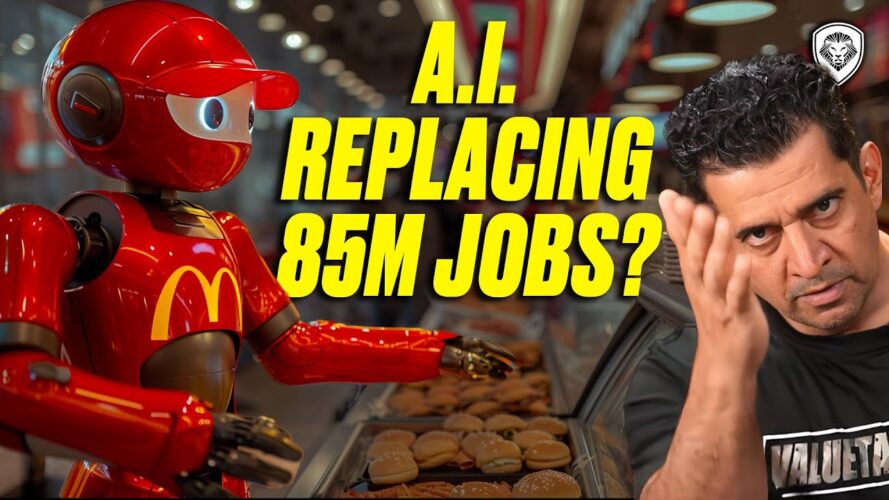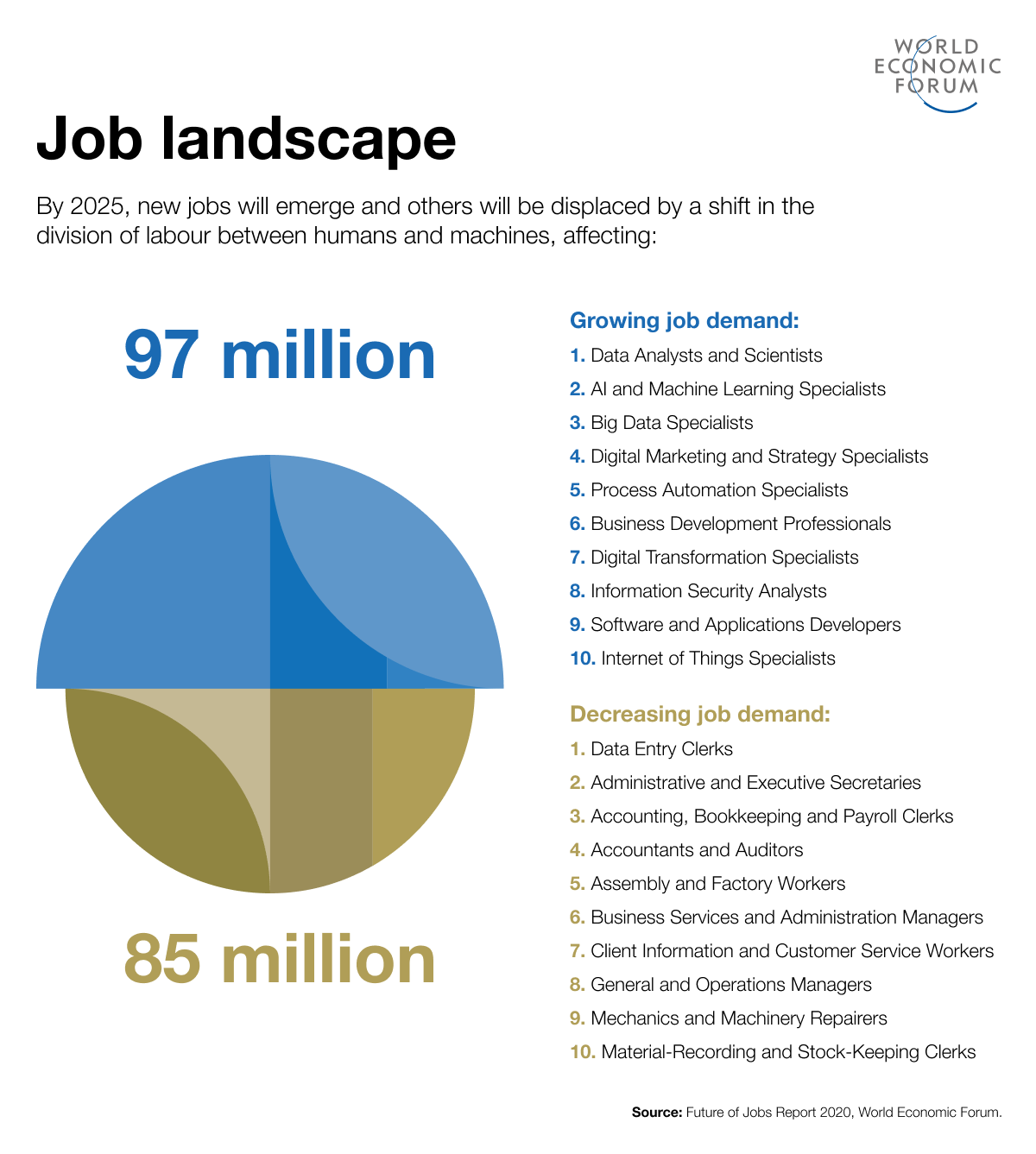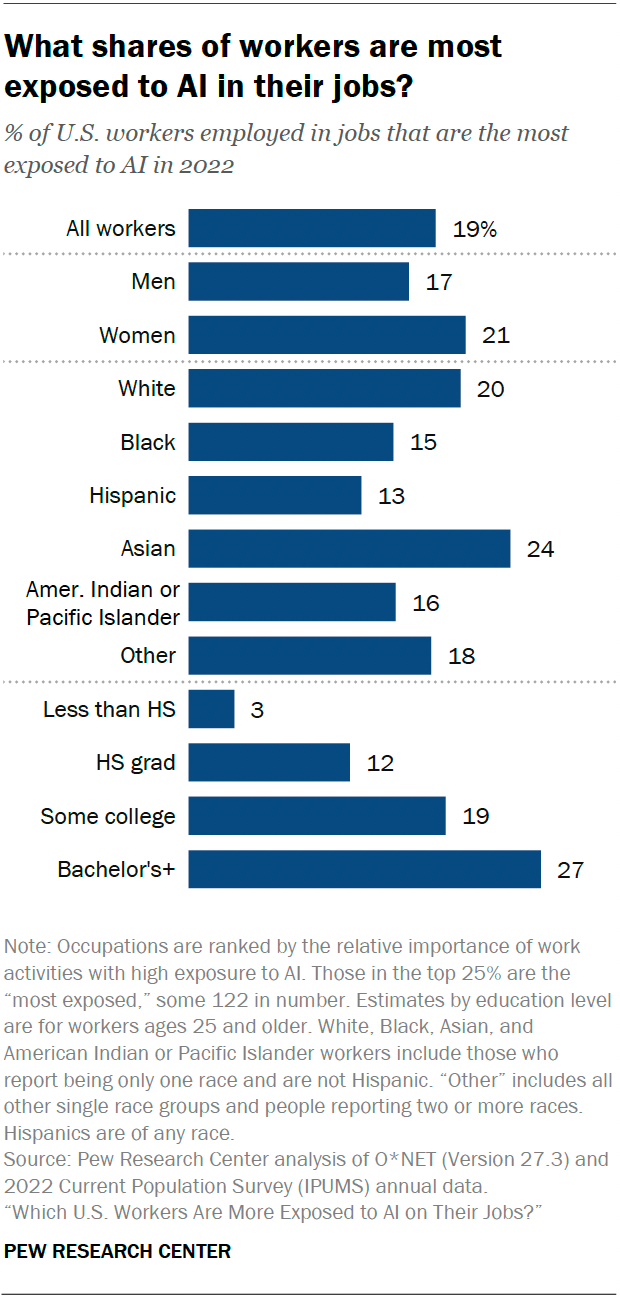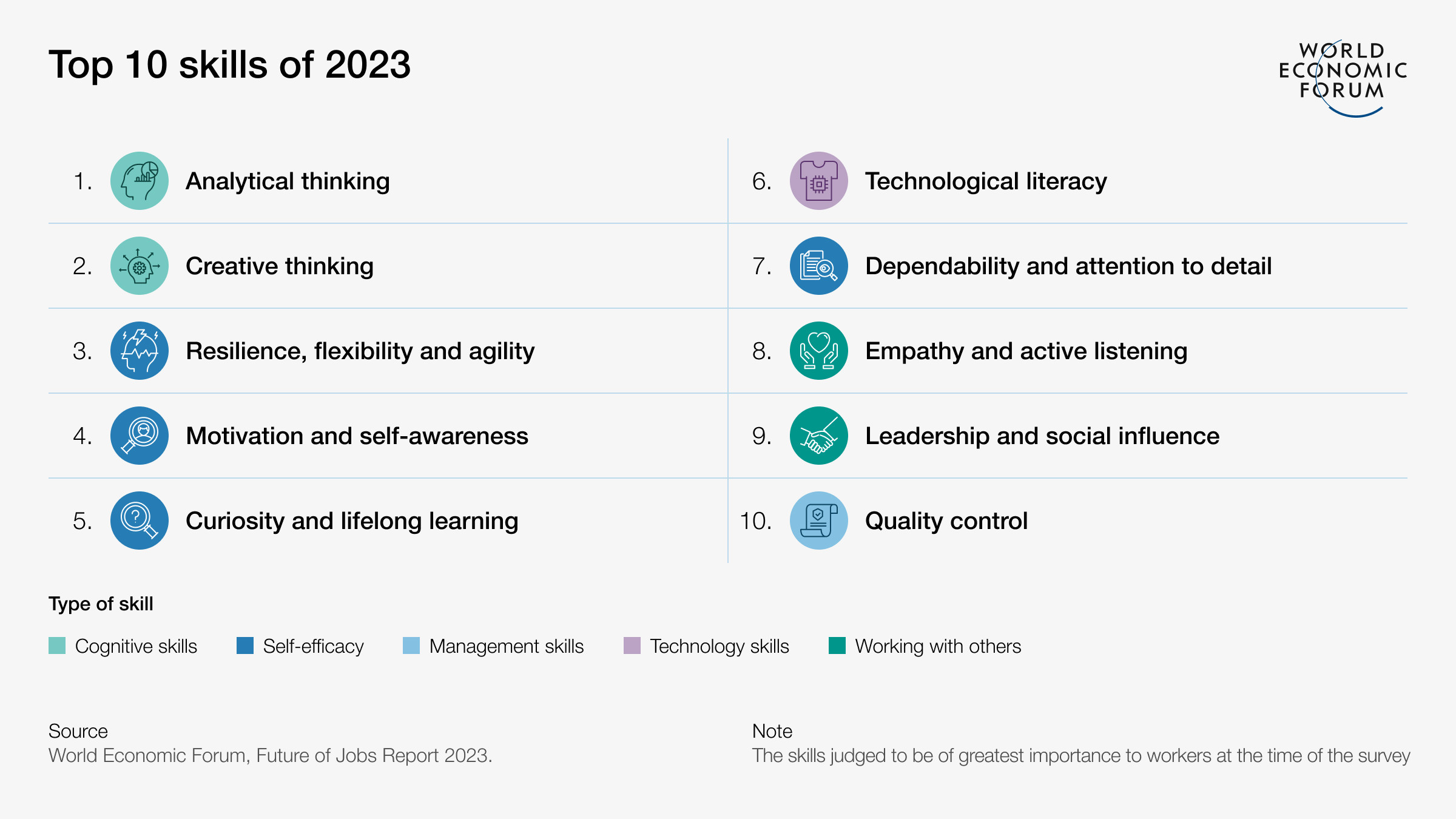In this video, Patrick Bet-David discusses the future of artificial intelligence (AI) and automation in the workplace and how they will affect millions of jobs.
According to McKinsey, by 2030 a minimum of 14 percent of the global workforce—or 375 million employees—will need to change careers due to digitization, robots, and AI advancements.
According to the World Economic Forum, 97 million new jobs will be created by the so-called fourth industrial revolution, but 85 million will be at risk of getting phased out. Jobs to be created include various forms of data analysis, software development roles, and logistics operatives. Jobs to be phased out include data entry clerks, assembly and factory workers, accountants, administrative secretaries, and customer service roles.
Goldman Sachs predicts about 300 million jobs could be replaced or significantly “degraded” by AI technology.
And according to PricewaterhouseCoopers, 37 percent of all jobs could be replaced by automation by the mid-2030s.
Learn the benefits of becoming a Valuetainment Member and subscribe today!
Institutions that study the trends of artificial intelligence have even released data on which demographics will be affected by the AI/automation revolution.
Pew Research Center believes women will be more affected than men (21 percent vs. 17 percent), Asians (24 percent) more than Whites (20 percent), and Whites more than Blacks (15 percent) and Hispanics (13 percent). College graduates (27 percent) will be far more affected than workers with high school diplomas (12 percent) or sub-high school educations (3 percent).
Jobs that will be automated according to Pew include customer service representatives, receptionists, accountants and bookkeepers, salespeople, researchers and analysts, warehouse workers, insurance underwriters, and retail workers.
Jobs that will not be automated, according to them, include teachers—but as Patrick says, pre-recorded courses could easily replace teachers, and insanely powerful new AI tools like Sora will be able to conjure movie scenes out of thin air, completely negating all the education that went into learning how to make them.
Other jobs they claim won’t be affected include lawyers and judges, directors, managers, CEOs, HR managers, psychologists, psychiatrists, surgeons, computer system analysts, and artists and writers. But we are already seeing Chat GPT write tons of generic copy that was previously done by human copywriters.
In the wake of AI, the World Economic Forum says certain skills will be in higher demand than others. Their list includes: creative thinking, analytical thinking, technological literacy, curiosity and lifelong learning, and flexibility and agility.
One skill that isn’t on the list, though, is teamwork. This is revealing: perhaps the World Economic Forum doesn’t believe humans will still be working together in communities. Maybe they think everyone will be working from a small cubicle or from their house.
Watch the rest of the video to hear Patrick’s closing thoughts on what AI will do to humans psychologically and morally, and how the anti-community predictions of the work-and-eat-from-home crowd are doomed to fail.
 Shane Devine is a writer covering politics, economics, and culture for Valuetainment. Follow Shane on X (Twitter).
Shane Devine is a writer covering politics, economics, and culture for Valuetainment. Follow Shane on X (Twitter).





















Add comment